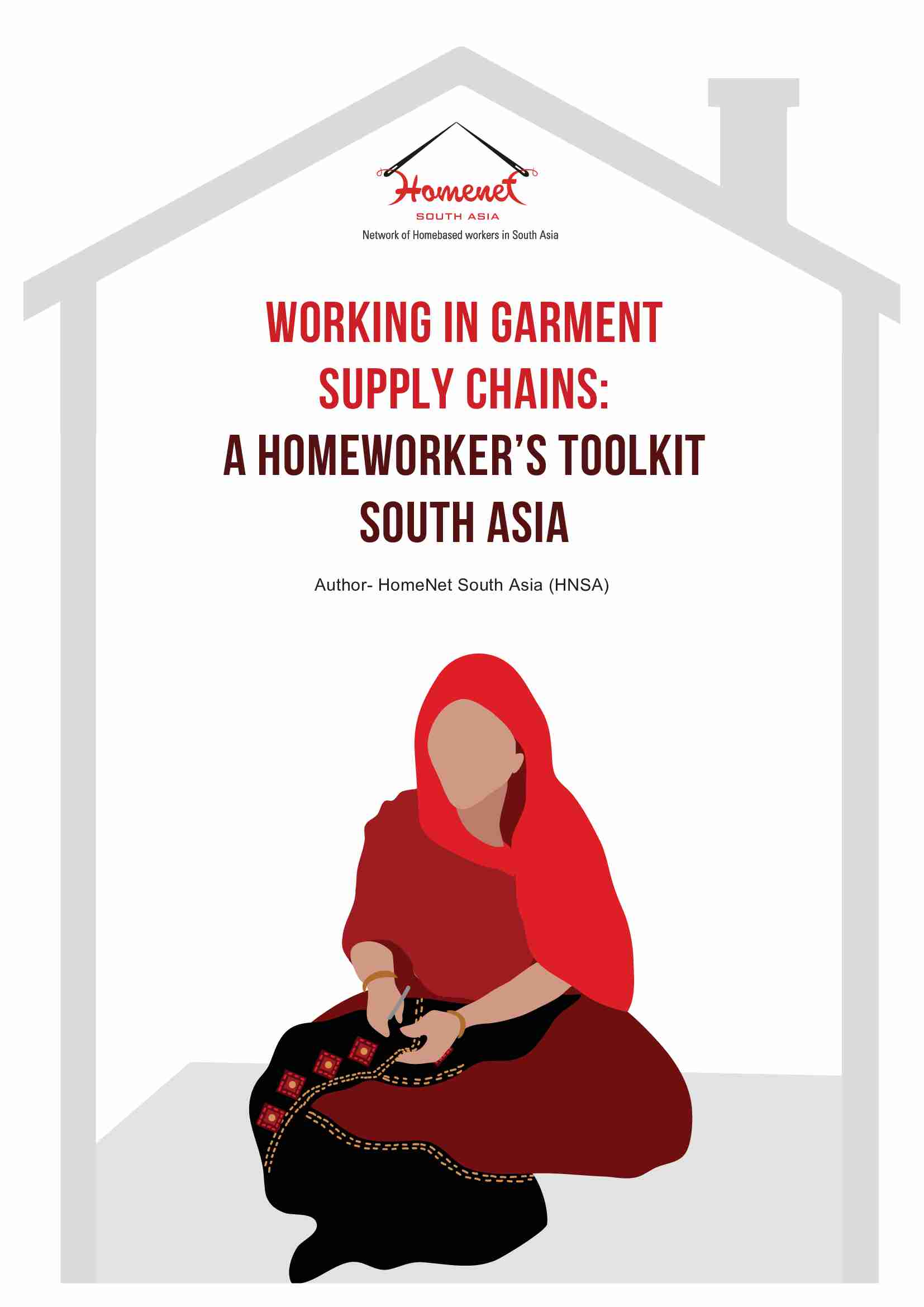Working in Garment Supply Chains: A Homeworker’s Toolkit (low-res)
The Working in Garment Supply Chains: A Homeworker’s Toolkit was developed in response to a demand by HNSA’s membership. It aims to offer an understanding on global and domestic garment supply chains, the issues faced within these supply chains and highlights existing legal instruments. It also presents good practices from the field and focuses on existing gaps. This toolkit is meant for trainers and organisers who are looking to train homeworkers in South Asia. This toolkit contains ten sections:
Section 1: Introduction to Homeworkers
Section 2: Key Issues Faced by Homeworkers
Section 3: Global Garment Supply Chain and Homeworkers
Section 4: Organising
Section 5: Minimum Wage
Section 6: Social Security and Social Protection
Section 7: Occupational Safety and Health
Section 8: Violence at the Workplace
Section 9: Child Labour
Section 10: Transparency and Traceability Tools
These sections can be used by trainers and organisers as resource manuals to create further training materials. During trainings, it can be used to supplement other materials on a specific issue or can even be used by itself. HNSA hopes this toolkit will be used by its member organisations for trainings as well as an organising tool. Global and domestic retail companies, governments, researchers, trade unions, multi-stakeholder organisations and other civil society organisations can use the toolkit to understand the issues faced by homeworkers and to promote a decent work agenda.
This is a low-resolution file (for downloading and sharing). A high-resolution file (for printing) is available here.
View list of all: Toolkits and Guides

